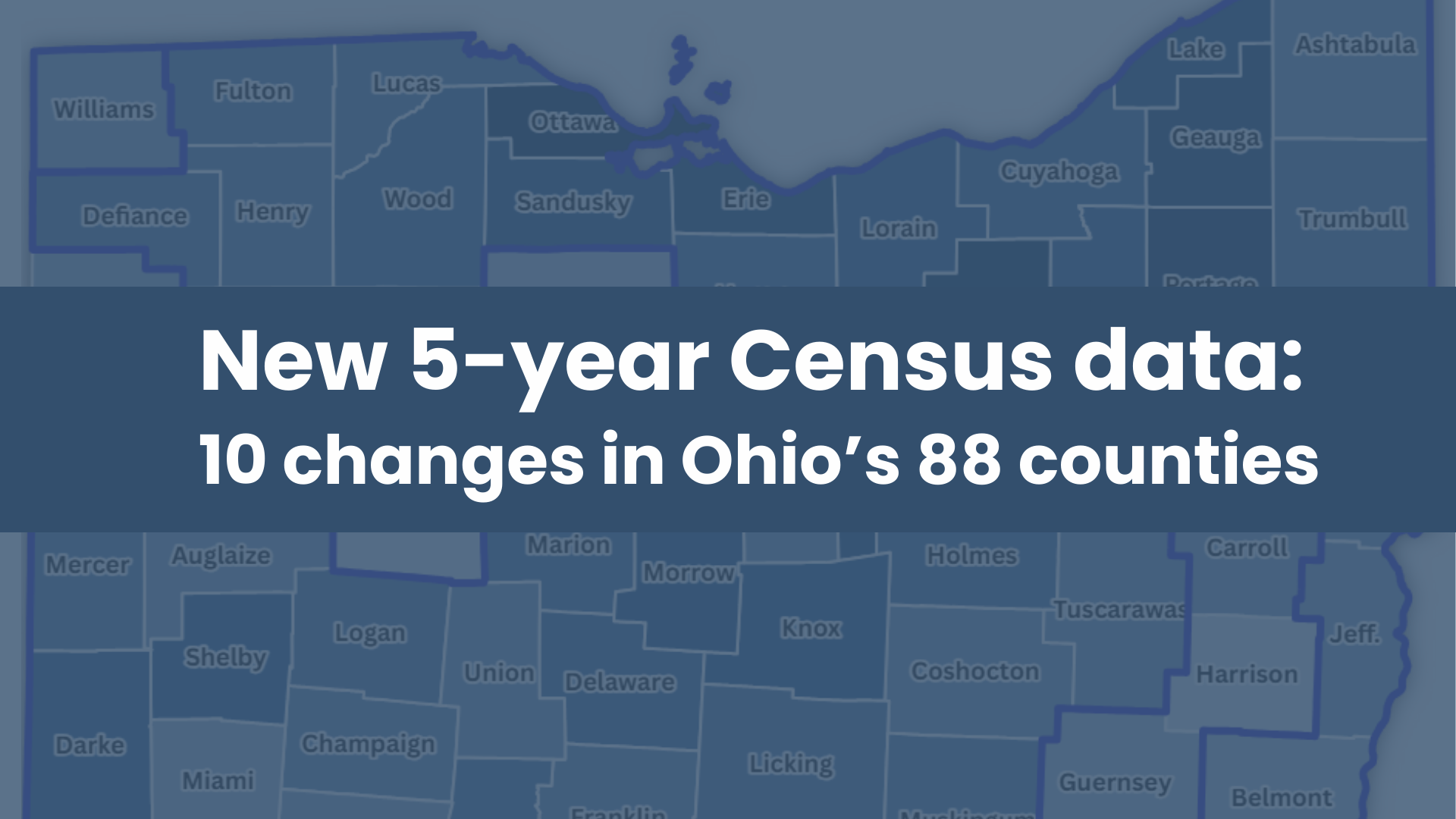By
Sam Sobul, Public Policy and External Affairs Intern
William Tarter Jr., Public Policy and External Affairs Associate
House Bill 62, otherwise known as the 2020-2021 transportation budget was signed into law by Governor Mike DeWine on Wednesday, April 3. With DeWine’s signature on the legislation, which featured no line-item vetoes, the process came to an end. Technically, the deadline for signing the transportation budget into law was March 31, however since the budget does not go into effect until July 1, most lawmakers do not expect any problems resulting from it being a few days late.[1]
The Ohio Senate removed all of the federal “flex” funding for public transit, and instead allocated $55 million from the general revenue fund.
The process
The final version of the transportation budget is the result of a long and difficult process. Initially, Governor DeWine requested a gas tax increase of 18 cents per gallon, and tied the gas tax to inflation. The Ohio House of Representatives pulled the gas tax growth back to 10.7 cents, and the Ohio Senate reduced it further to 6 cents per gallon, with neither tying the increase to inflation. Additionally, the Ohio House had originally proposed $100 million in federal “flex” dollars allocated to public transit in the transportation budget, in addition to the $6.5 million allocated from the general revenue fund in the state operating budget. The Ohio Senate removed all of the federal “flex” funding for public transit, and instead allocated $55 million from the general revenue fund. From there, a conference committee formed, to reconcile the differences between the Senate bill and the House bill. The conference committee consisted of:
* State Representative Scott Oelslager (R-North Canton)
* State Representative Dave Greenspan (R-Westlake)
* State Representative Jack Cera (D-Bellaire)
* State Senator Matt Dolan (R-Chagrin Falls)
* State Senator Bob Peterson (R-Sabina)
* State Senator Nickie Antonio (D-Lakewood)
The final vote of the conference committee was 5-1, with State Senator Bob Peterson the lone dissenting vote. The conference committee legislation, Amended House Bill 62, passed the Ohio House 70-27, and the Ohio Senate, 22-10.
The final version
As enacted, this budget will increase the tax rate on gasoline by 10.5 cents, to $0.385 per gallon and on diesel by 19 cents to $0.47 per gallon. Both of these are effective as of July 1. This change is expected to increase motor fuel tax revenue by around $865 million per year more than what it would have been at the current rate. Public transit funding has been removed from the transportation budget and instead will be funded by general revenue fund money appropriated through the main operating budget. Currently, $70 million is set to be allocated to this purpose, although the main operating budget process is still ongoing. Previously, the state allocated $33 million in federal “flex” dollars and $6.5 million from the general operating budget for public transit. While $70 million for public transit is an improvement from the combined $39.5 million of previous budgets, it is still a long way from recommendations in the 2015 Ohio Department of Transportation Needs Study, which recommended funding of $1.8 billion over 10 years, from 2015-2025.
House Bill 62 also established registration fees on hybrid and electric cars, which have been set at $100 and $200, respectively, although this will not go into effect until January 1, 2020. These charges ensure that those who drive but do not use gasoline, or who use significantly less gasoline than someone with a traditional vehicle, still provide funds towards repairing the roads. It is expected that this change will bring in approximately $23 million over the two fiscal years covered by this budget. To offset these tax hikes, the conference committee and the Governor maintained the Senate’s proposed increase of the Earned Income Tax Credit (EITC). Under the new law, Ohio’s EITC increases from 10 to 30 percent of the taxpayer’s federal credit. Additionally, a clause that limited the state EITC to at most 50 percent of a person’s tax liability if they earned more than $20,000 per year was eliminated. It is estimated that this change will reduce Ohio’s tax revenue by roughly $38 million annually.
Under the new law, Ohio’s EITC increases from 10 to 30 percent of the taxpayer’s federal credit.
There are a number of additional facets to the transportation budget, we will mention a couple of noteworthy portions here. The first is the elimination of the Financial Responsibility Random Verification Program. This is a program that randomly sends letters to 5,400 Ohioans each week asking for proof of vehicle insurance. A person who fails to provide proof would have their driver’s license suspended. Failure to provide proof of vehicle insurance is the leading cause of driver’s license suspension in the state of Ohio. Previous work by Community Solutions has shown that these suspensions disproportionately impact poor Ohioans. Another important change is one that would allow a county’s social services expenditures to be used as matching funds by transit systems. However, the transit system is required to enter into an agreement with the local government, department, agency, board or commission responsible for administering those funds before this may occur. Also of note is that the final version of the transportation budget will eliminate the front license plate requirement, although that will not go into effect until July 1, 2020. Finally, the tax on compressed natural gas will be phased in over a five-year period until its rate is equivalent to that of the diesel tax.







